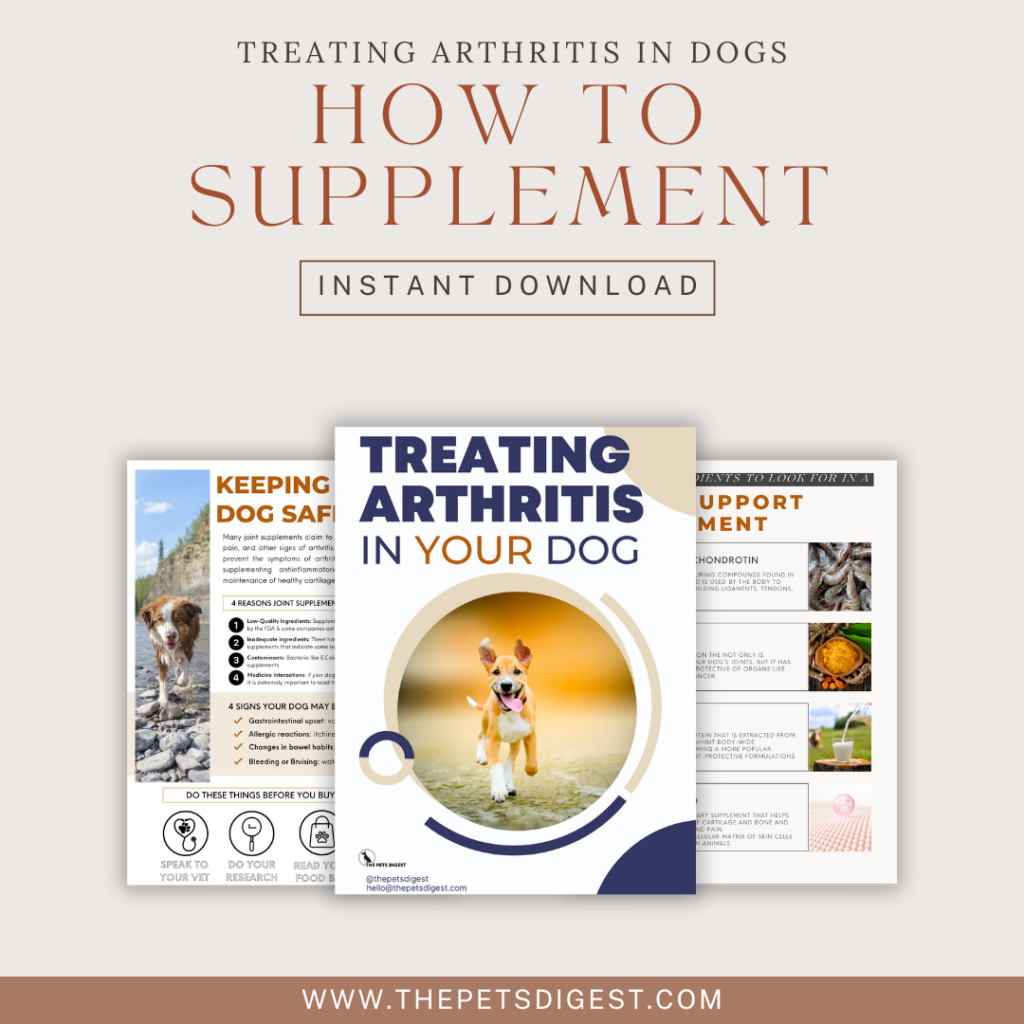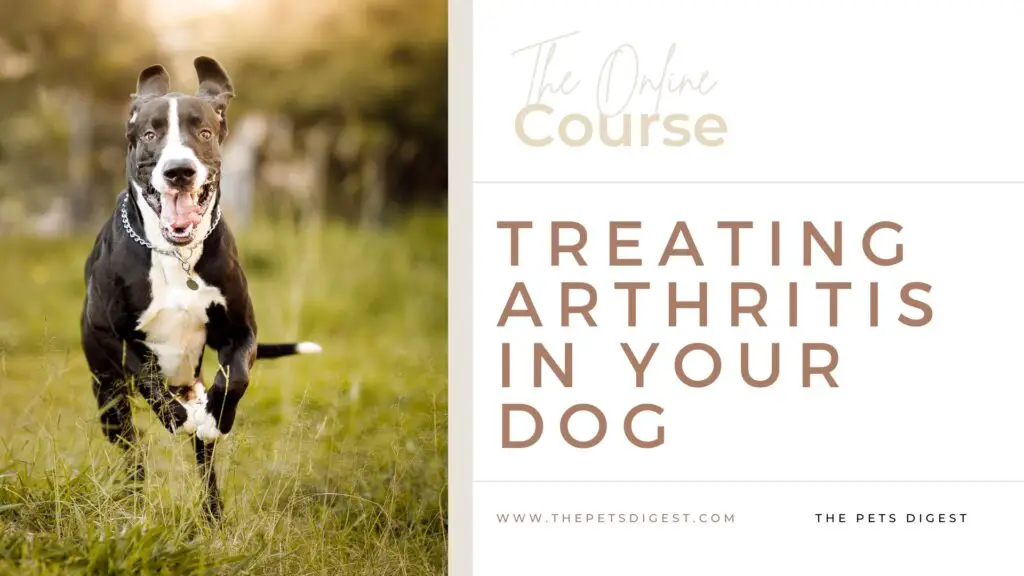While there are many things you can do to help prevent or delay your dog from developing osteoarthritis later in life ensuring they are eating a well-balanced diet is one of the main modes of prevention.
A nutritious diet fed consistently throughout your dog’s life may encourage osteoarthritis delay or prevention because diet not only affects your dog’s weight but can also help decreases inflammation in the body and develop a healthy microbiome.
You might wonder isn’t my dog’s microbiome in their stomach? What does that have to do with my dog’s joints? Believe it or not, the microbes in your dog’s gut contribute to just about every bodily function.
This is why everyone should be aware of how to feed their dog properly, not only to help stave off arthritis but other diseases as well.
Join the email list to stay up to date on all your dog’s nutritional needs
Due to the limited research on osteoarthritis prevention in dogs, further studies are needed to definitively determine which aspects of a dog’s diet may help prevent or delay arthritis. However, many vets and owners notice a tremendous improvement with a beneficial diet.
Let’s look at some ways what you feed your dog can help.
Signs of arthritis in dogs
Here are some common symptoms of joint pain in your dog
- Limping
- Stiffness in limbs
- Irritability
- Unable to walk normally
- Slipping on surfaces they did not have issues walking on before
- Soreness at joints
- Excessive licking or biting at the area causes pain

5 ways food can help prevent arthritis in dogs

1. Weight management
While much more research is needed about osteoarthritis prevention in dogs, experts agree that good nutrition that leads to maintaining a lean body and healthy weight is one of the most important things you can do to help prevent the development of arthritis in your dog.
Keeping your dog at a healthy weight will not only encourage them to be more active (which is also helpful to stave off arthritis) but it will decrease the pressure imposed on your dog’s joints.
Being overweight or obese puts your dog at a higher risk for osteoarthritis because it increases the risk of joint damage.
Make sure you are feeding your dog a high-quality diet formulated with whole foods that are preferably organic. Also, refrain from feeding your dog table scraps that are fatty, contain seasonings like salt, or are sugary.
2. Provide Nutraceuticals & Supplements
Nutraceuticals like Omega 3s, glucosamine, and MSM have been shown to help treat osteoarthritis in dogs. Although more research is necessary to show prevention, many vets recommend it for larger dogs or those that have had to go through surgery for hip or elbow dysplasia.
There are many diets that include nutraceuticals and supplements, specifically large-breed foods, for dogs that may be more prone to developing arthritis.
To read more about specific supplements that are helpful to dogs with osteoarthritis we have provided an easy-to-read list here.
Speak with your veterinarian before making any changes to your dog’s diet or giving them supplements especially if they are a puppy.
Most vets recommend waiting until your dog is at least one year of age or older before enhancing their diet with supplements. In addition, many nutraceuticals and supplements are not approved to be included in food for dogs under one.
3. Provide bone healthy ingredients
Many high-quality diets for dogs not only include whole fruits and vegetables which provide many health benefits but they are also fortified with vitamins and minerals like vitamin D and calcium which are necessary for healthy bones and joints.
It is imperative that you feed your dog a diet that is nutritious and high-quality to help prevent many diseases that can develop come from nutrient deficiency like arthritis
4. Disease Prevention
Many times dogs with other diseases also develop osteoarthritis as a secondary issue.
Chronic diseases like diabetes or Cushings may cause weight gain and can result in increased pressure placed on the joints and dogs may develop subsequent osteoarthritis. Even fractures as a puppy can cause issues later in life.
Feeding your dog to improve the symptoms of other issues like diabetes can help them in the long run.
5. Reduce inflammation
If your dog is fed a well-balanced nutritious diet it may help prevent joint damage in the long run through the provision of anti-inflammatories and antioxidants.
Arthritis is basically inflammation of the joints at its most elementary level, so feeding your dog antiinflammatories may help decrease overall systemic inflammation.
Many quality diets, whether store-bought or homemade, will help to reduce inflammation in the body through the inclusion of fruits, vegetables, and supplements that produce antioxidants.
To read about things you should NOT feed your dog with arthritis, read this article.
Other things you can do to help prevent arthritis in dogs

- Ensure your dog is on flea and tick prevention as the primary expression of Lyme disease in dogs is arthritis
- Have your dog checked for signs of dysplasia early on as this is something that can often be corrected and help prevent arthritis down the line if surgical intervention is taken as soon as possible
- Ensure your dog gets adequate exercise. Exercise is beneficial for all dogs, this not only helps keep them at a healthy weight but will help deter the formation of arthritis. If possible incorporate low-impact exercise, like swimming, into your dog’s routine early on
Conclusion
In conclusion, starting and keeping your dog on a nutritious, well-balanced, high-quality diet may not only help delay or prevent osteoarthritis but help them live a long and healthy life

Other Articles About Arthritis in dogs
References
- https://maximumk9service.com/blogs/blog/how-to-prevent-arthritis-in-dogs
- https://academic.oup.com/jn/article/136/7/1995S/4664779
- https://avmajournals.avma.org/view/journals/javma/230/4/javma.230.4.514.xml

























































































































